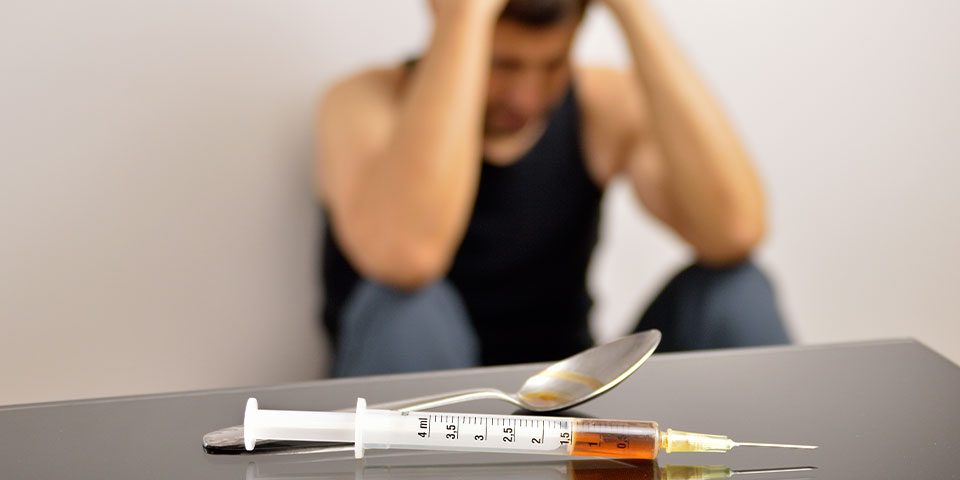Adderall is a combination of the drugs dextroamphetamine and amphetamine that’s used to treat attention deficit hyperactivity disorder (ADHD).
As a stimulant, Adderall works by increasing the levels of neurotransmitters in the brain called dopamine, serotonin, and norepinephrine, which control mood and emotion. Because Adderall regulates mood, it’s been proven helpful in improving hyperactivity, impulsivity, and spans in attention. As a rehab in Philadelphia, we’re aware that many people abuse or misuse Adderall for its stimulating side effects. The effects of Adderall on the body as a result of long-term abuse can be very dangerous and life-threatening. While Adderall is helpful for some who have ADHD, you should not take it unless directed by your doctor.
What Does Adderall Do to Your Body?
The effects of Adderall abuse on the body are extensive. Because this drug is a stimulant, it works by targeting the brain, which in turn affects other functions. People who take Adderall without a prescription, abuse it, or misuse it in any way are at a higher risk of experiencing adverse physical side effects. Below are some long-term effects of Adderall on the body.
As the name suggests, stimulants target the brain and “stimulate” nerve activity; different stimulants will target different neurotransmitters. Adderall affects the brain by enhancing the release of dopamine, serotonin, and norepinephrine. Dopamine plays a role in the brain’s reward system by activating pleasure and also plays a role in the way we think, plan, and make decisions. Serotonin plays a key role in stabilizing mood, sleeping, eating, and digestion. Norepinephrine increases arousal and alertness and is also naturally released by the central nervous system in times of stress; this is also known as the fight-or-flight response. There’s also a connection between dopamine production and mental illness; abusing drugs like Adderall can increase the likelihood of a mental disorder.
When a person who does not have ADHD or a similar condition takes this drug, they may experience adverse Adderall effects like:
- Nervousness
- Restlessness
- Dizziness
- Slurred speech
- Troubles falling asleep or staying awake
- Vision problems
- Fever
- Hallucinations
- Paranoia
- Depression
- Worsening symptoms of a mental disorder
Adderall can also affect the heart by constricting blood vessels, spiking blood pressure, and increasing heart rate. Numbness is also a common side effect of Adderall abuse due to its interference with the heart and circulatory system. Additional cardiovascular symptoms of Adderall addiction include heart attack and stroke. It’s also common for people who abuse Adderall to experience frequent chest pains and shortness of breath, especially when they take a high dose. If this pattern of behavior is repeated, the person’s heart may weaken, leaving them more susceptible to cardiovascular disease and other health problems.
Since Adderall also enhances the release of serotonin, it can cause stomach and digestive problems. It causes the muscle in the digestive tract to slow, which can lead to constipation and stomach pain. Adderall can also decrease a person’s appetite, which often leads to extreme weight loss and even unintentional anorexia. Nausea, vomiting, and diarrhea are also common side effects of Adderall on the body.
Questions about our Facilities or Programs?
Our admissions coordinators are available 24/7 to answer any questions you may have as you consider whether treatment at Banyan is right for you or your loved one.
Can You Overdose on Adderall?
Yes, an Adderall overdose is a real possibility. Amphetamine salts, which are stimulant drugs, are present in Adderall. The body's processes can become overtaxed when Adderall is used in excess, which can have major negative effects on one's health. When the dosage of Adderall consumed surpasses the advised therapeutic levels, an overdose occurs.
It is critical to seek prompt medical assistance if an Adderall overdose is suspected. The medical professional can administer the proper care to control the symptoms and stop any additional problems. To reduce the risk of overdose, it's crucial to only use Adderall as directed by a doctor and stick to the suggested dosage.
How Long Does Adderall Stay In Your Body?
The amount of time that Adderall remains in the body will ultimately depend on a number of factors. Normally, the half-life of Adderall is between 9 to 14 hours. The term ‘Adderall half-life’ refers to the amount of time that it takes for half of the drug to be eliminated from the user’s bodily systems. That being said, it can take even longer for this process to occur in some cases.
Factors that can influence the length of time that Adderall remains in the body include:
- Frequency of drug use
- The dosage taken
- The metabolism of the user
- Liver and kidney function
- Hydration levels
- pH levels
Before a person starts taking Adderall, it is important for them to speak extensively with their healthcare provider about the potential risks involved. The side effects of Adderall abuse do not discriminate. Anyone who continuously misuses this drug and fails to receive professional help is at risk of deadlier consequences. At Banyan Treatment Centers Philadelphia, we offer a partial hospitalization program that allows patients to recover from their addictions while learning how to transition back into everyday life. In fact, patients at our drug rehab in Langhorne, PA, have access to numerous other levels of care, ensuring they get a recovery experience that is tailored to their unique needs.
Even though Adderall is a prescription drug, it doesn’t mean it’s entirely safe. People who have been prescribed Adderall and begin to misuse it are at risk of addiction.
How Does Adderall Affect The Brain And Neurotransmitters, Leading To Mood Disturbances And Potential Addiction?
Adderall impacts the brain by influencing the levels of certain neurotransmitters such as dopamine, norepinephrine, and serotonin. By altering the reabsorption of these neurotransmitters and increasing their presence in the brain, Adderall leads to an accumulation of these chemicals. This accumulation results in heightened energy levels, brain stimulation, and feelings of pleasure. Additionally, these neurotransmitters communicate with brain regions responsible for regulating emotions, internal motivation, and reward.
The artificial alteration of these brain regions and neurotransmitters due to Adderall use can lead to gradual chemical changes in the brain. With prolonged exposure to Adderall, the brain may reduce its natural production of dopamine since it becomes reliant on the drug to maintain dopamine levels. Consequently, when Adderall is no longer present in the system and dopamine levels drop, individuals may experience a decline in positive feelings and an onset of symptoms like anxiety, depression, and panic as part of Adderall withdrawal. These symptoms are common in cases where dependence on Adderall has developed through chronic usage.
It is crucial to note that Adderall is classified as a highly addictive substance by the Drug Enforcement Administration (DEA), recognized as a Schedule II controlled substance. This classification indicates that despite its accepted medicinal uses, Adderall possesses a significant potential for addiction due to its impact on the brain’s neurotransmitter systems.
What Are The Withdrawal Symptoms Of Adderall And How Can They Be Managed?
Withdrawal symptoms from Adderall can encompass a range of physical and psychological effects, which may include difficulty sleeping, increased irritability, changes in appetite, fatigue, drug cravings, mood changes, and potentially even suicidal thoughts. When someone is addicted to Adderall and decides to stop using the drug, it can be challenging due to these withdrawal symptoms. The process of withdrawal typically involves a period of adjustment as the brain readjusts to functioning without the drug present.
Managing withdrawal symptoms from Adderall can involve a variety of strategies. Seeking professional help and medical supervision through a process like medical detox can be beneficial, as it provides the necessary support and monitoring during the withdrawal phase. Support from healthcare providers, therapists, or addiction counselors can also play a crucial role in managing withdrawal symptoms effectively.
Additionally, developing a structured plan for recovery that includes healthy habits, such as regular exercise, balanced nutrition, and sufficient rest, can aid in alleviating some withdrawal symptoms. It's important for individuals undergoing Adderall withdrawal to have a strong support system in place to cope with the challenges that may arise during this period. Open communication with healthcare professionals and loved ones can help manage withdrawal symptoms and facilitate a successful recovery journey.
How Can One Quit Adderall Use?
Quitting Adderall use requires careful monitoring by a medical professional, especially in cases of legitimate use, to ensure a safe and effective transition. For those abusing Adderall, recovery is achievable through comprehensive treatment strategies. It is crucial to acknowledge that many health issues associated with Adderall use may stem from underlying conditions and that recreational use can result in severe consequences. With proper care and support, the side effects of Adderall abuse can often be reversed, highlighting the importance of seeking professional assistance when striving to quit Adderall use.
What Are Some Statistics Related To Nonmedical Use And Abuse Of Adderall, Especially Among College Students?
According to information gathered from various sources such as the National Survey on Drug Use and Health (NSDUH) and the Substance Abuse and Mental Health Services Administration (SAMHSA), it has been reported that there is a significant prevalence of nonmedical use and abuse of , particularly among college students. For instance, the NSDUH survey in 2013 indicated that there were 1.4 million individuals who used prescription stimulants nonmedically within a month of the survey. Moreover, SAMHSA highlighted that full-time college students aged 18-22 were approximately twice as likely to misuse Adderall compared to their peers who were not enrolled in college on a full-time basis. Additionally, data from the Drug Abuse Warning Network (DAWN) showed a considerable increase in emergency department visits related to the misuse or abuse of Adderall over the years, with a noteworthy 650 percent spike between 2004 and 2011 and a 100 percent increase from 2009 to 2011. These statistics underscore the concerning trend of nonmedical use and abuse of Adderall, especially among the college student population, with implications for both individual health and academic integrity.
What Are Some Of The Side Effects Women May Experience When Abusing Adderall?
When women abuse Adderall, they may experience a range of side effects. These can include increased anxiety, difficulty in falling or staying asleep, changes in bowel movements, dry mouth, headaches, dizziness, and decreased libido. Additionally, some women may seek out Adderall for its perceived weight loss benefits, as the drug can suppress appetite while boosting energy levels. However, rapid weight loss achieved through Adderall abuse can be harmful, leading to issues like anorexia, cardiovascular damage, liver damage, and a significantly slowed metabolism. Another danger of non-medical Adderall use is the risk of high blood pressure, increased heart rate, and mood swings. Therefore, women who abuse Adderall for weight loss or other purposes should be aware of these potential side effects and risks to their health.
When women abuse Adderall, they may experience a range of side effects. These can include increased anxiety, difficulty in falling or staying asleep, changes in bowel movements, dry mouth, headaches, dizziness, and decreased libido. Additionally, some women may seek out Adderall for its perceived weight loss benefits, as the drug can suppress appetite while boosting energy levels. However, rapid weight loss achieved through Adderall abuse can be harmful, leading to issues like anorexia, cardiovascular damage, liver damage, and a significantly slowed metabolism. Another danger of non-medical Adderall use is the risk of high blood pressure, increased heart rate, and mood swings. Therefore, women who abuse Adderall for weight loss or other purposes should be aware of these potential side effects and risks to their health.
Getting into treatment is easy with our free insurance verification
"*" indicates required fields
Why Does Adderall Affect Women Differently Than Men?
Adderall affects women differently than men due to various factors such as average body weight, hormonal influences like estrogen from the menstrual cycle, and differences in metabolism. The body weight of women affects the bioavailability of one of the amphetamines in Adderall, leading to differences in dose administration. Additionally, estrogen levels during the menstrual cycle, particularly in the follicular phase, can impact how the body processes Adderall, potentially enhancing its effects and leading to increased cravings and physical dependency. These factors contribute to the differences in how women and men metabolize Adderall, making it important to consider gender-specific dosages to avoid potential serious side effects in women.
How Can One Get In Contact With Resources For Addiction Treatment And support?
To get in contact with resources for addiction treatment and support, individuals can reach out by calling Banyan Treatment Centers at 888-280-4763 . Additionally, they have the option to verify their insurance coverage for treatment by providing their personal information and insurance details. This process helps in determining if they are in-network with the facilities, the coverage duration, and more. Moreover, they can easily check their insurance coverage online for treatment options available to them. These services are confidential, free, and carry no obligation to enter treatment.
If you or a loved one is struggling with this form of drug addiction, call Banyan’s Philadelphia drug rehab today at 888-280-4763 for more information on our prescription drug treatment.
Related Reading:









